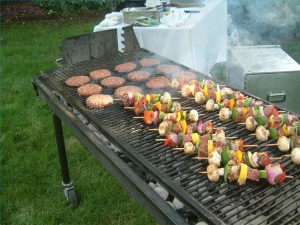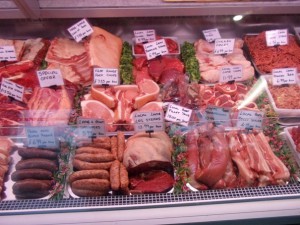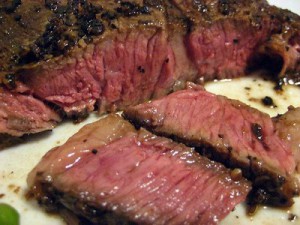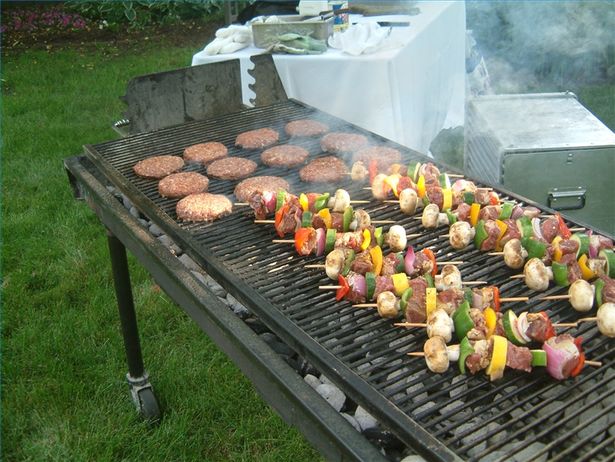1) Proper Planning
RSVP’s are essential to this part of proceedings. If, say, you’re cooking for 20 people, it’s best to calculate exactly how much of each kind of food you will use. 2 chicken legs, 1 steak, 1 jacket potato, 2 slices of halloumi cheese and a scoop of salad is surely enough to feed any hungry mouth, and you can make up batches of sauces and sides to bulk up any empty space on your guests’ plates. The simple act of making a precise shopping list could save you a small fortune – as any leftovers won’t keep for long in the fridge after your party. So, for an event for 20 people, you’d need 40 chicken legs, 20 steaks, 20 jacket potatoes, around 20 blocks of halloumi and 10 bags of salad. This sounds like a lot – but you’re guaranteed not to over-cater, and to have exactly the right amount of food for your guests. Using skewers is also a great way to incorporate lots of inexpensive, varied and colourful ingredients into one dish.

2) Visit your Butcher
This is a truly invaluable thing to do. About a fortnight before your event, visit your local butcher and buy some meat from them – while also mentioning you’re catering for a large party in the coming days. If a small business sees an opportunity for a large order, they’re likely to cut you a fantastic deal for the chance of repeat business and good word of mouth. While supermarkets are usually cheaper, you’ll get much better quality meat from your butcher, and due to the bigger portions, you may well find you don’t actually have to buy as much produce as you would in a commercial shop. For example, two supermarket sausages aren’t likely to provide as much meat as just one farmer’s sausage from a butchers – so you simply end up buying less of them. This means less cooking, less hassle, less for you to carry home, and the satisfaction of supporting a small local business.

3) Think Carefully about Sides & Salads
Using pasta and rice is a great way to create bulk sharing bowls on a budget. You can make up enormous batches of pasta salad and rice mixes with basic, inexpensive ingredients – for example, some cooked pasta cooled down with a dash of olive oil, mixed chopped peppers, tinned sweetcorn, sliced red onions and various herbs makes a filling and refreshing summer dish, and is certain to tie all the other foods together to create a truly harmonious plate.

4) Do a Private Test Run
This is an important thing to do, particularly if you’re planning on using a grill that you haven’t used much in the past. Buy one of each of your ingredients to experiment with for a family dinner prior to your event, and you can put your cooking techniques on trial before you have to cater for your party. This way, you’ll avoid any culinary mishaps by realising exactly how long each food takes to cook on your BBQ. Once the day arrives, you’re sure of what you’re cooking in the confidence you’ve had some practice. This is also a good opportunity to buy some ingredients from the butcher, as per point 2.

5) Ask your guests to bring desserts
Puddings can be a real money-eater. Fresh fruit isn’t cheap, and neither are ready-made cakes or desserts. While baking a simple sponge is very cost-effective and ultimately delicious, you simply may not have the time (or work surface space) to plan this into your busy cooking schedule. Asking your guests to bring desserts can add a real feeling of surprise, fun, community and luxury to your party. Keen bakers will jump at the opportunity to display their talents, while the less enthusiastic will surely by happy to purchase some sweet delight to thank you for your invite and hosting. Also, with the recent surge of people growing their own fruit and veg, you could end up with some real treats fresh from your guests’ own gardens.

Call Best Venues London for incredible deals at summer party venues near you!

